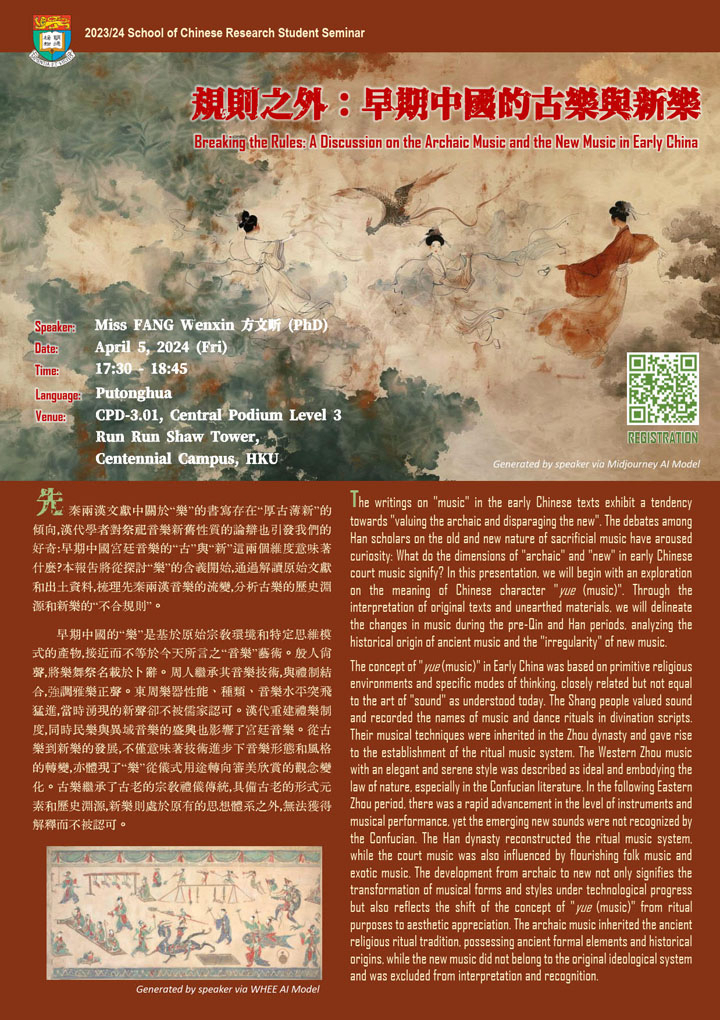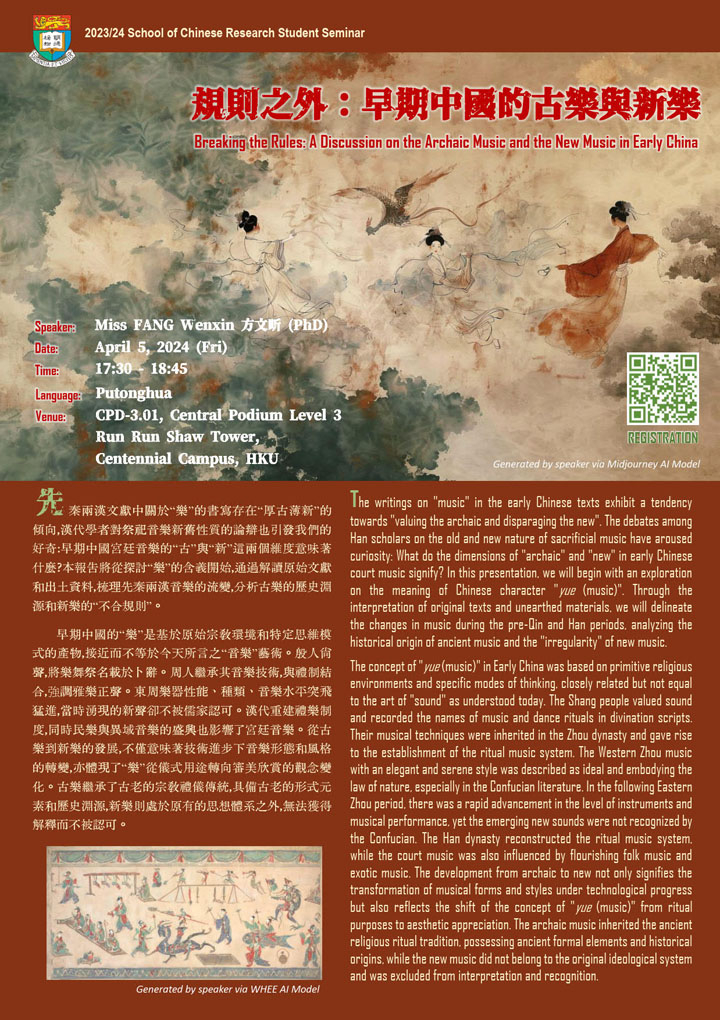規則之外:早期中國的古樂與新樂 Breaking the Rules: A Discussion on the Archaic Music and the New Music in Early China

2023/24 School of Chinese Research Student Seminar
規則之外:早期中國的古樂與新樂
Breaking the Rules: A Discussion on the Archaic Music and the New Music in Early China
Abstract:
先秦兩漢文獻中關於“樂”的書寫存在“厚古薄新”的傾向,漢代學者對祭祀音樂新舊性質的論辯也引發我們的好奇:早期中國宮廷音樂的“古”與“新”這兩個維度意味著什麼?本報告將從探討“樂”的含義開始,通過解讀原始文獻和出土資料,梳理先秦兩漢音樂的流變,分析古樂的歷史淵源和新樂的“不合規則”。
早期中國的“樂”是基於原始宗教環境和特定思維模式的產物,接近而不等於今天所言之“音樂”藝術。殷人尚聲,將樂舞祭名載於卜辭。周人繼承其音樂技術,與禮制結合,強調雅樂正聲。東周樂器性能、種類、音樂水平突飛猛進,當時湧現的新聲卻不被儒家認可。漢代重建禮樂制度,同時民樂與異域音樂的盛興也影響了宮廷音樂。從古樂到新樂的發展,不僅意味著技術進步下音樂形態和風格的轉變,亦體現了“樂”從儀式用途轉向審美欣賞的觀念變化。古樂繼承了古老的宗教禮儀傳統,具備古老的形式元素和歷史淵源,新樂則處於原有的思想體系之外,無法獲得解釋而不被認可。
The writings on "music" in the early Chinese texts exhibit a tendency towards "valuing the archaic and disparaging the new". The debates among Han scholars on the old and new nature of sacrificial music have aroused curiosity: What do the dimensions of "archaic" and "new" in early Chinese court music signify? In this presentation, we will begin with an exploration on the meaning of Chinese character "yue (music)". Through the interpretation of original texts and unearthed materials, we will delineate the changes in music during the pre-Qin and Han periods, analyzing the historical origin of ancient music and the "irregularity" of new music.
The concept of "yue (music)" in Early China was based on primitive religious environments and specific modes of thinking, closely related but not equal to the art of "sound" as understood today. The Shang people valued sound and recorded the names of music and dance rituals in divination scripts. Their musical techniques were inherited in the Zhou dynasty and gave rise to the establishment of the ritual music system. The Western Zhou music with an elegant and serene style was described as ideal and embodying the law of nature, especially in the Confucian literature. In the following Eastern Zhou period, there was a rapid advancement in the level of instruments and musical performance, yet the emerging new sounds were not recognized by the Confucian. The Han dynasty reconstructed the ritual music system, while the court music was also influenced by flourishing folk music and exotic music. The development from archaic to new not only signifies the transformation of musical forms and styles under technological progress but also reflects the shift of the concept of "yue (music)" from ritual purposes to aesthetic appreciation. The archaic music inherited the ancient religious ritual tradition, possessing ancient formal elements and historical origins, while the new music did not belong to the original ideological system and was excluded from interpretation and recognition.








